Making Parenthood Possible For More Families
Hear how NewYork-Presbyterian helped three moms navigate serious conditions to have healthy babies.
When Porshea Gaddy became pregnant in 2022, her joy and excitement were tinged with fear. The 34-year-old New York City bus driver knew that as a Black woman with obesity and high blood pressure, she faced greater odds of having complications like preeclampsia — dangerously high blood pressure in pregnancy.
“I did my research and I knew the numbers, the greater mortality among African Americans,” says Porshea who had learned that Black women are about three times more likely to die from pregnancy-related causes than white women, and in New York City, nine times more likely. “And I knew someone personally who died from childbirth because of preeclampsia. It was devastating. I was more nervous and fearful than anything.”
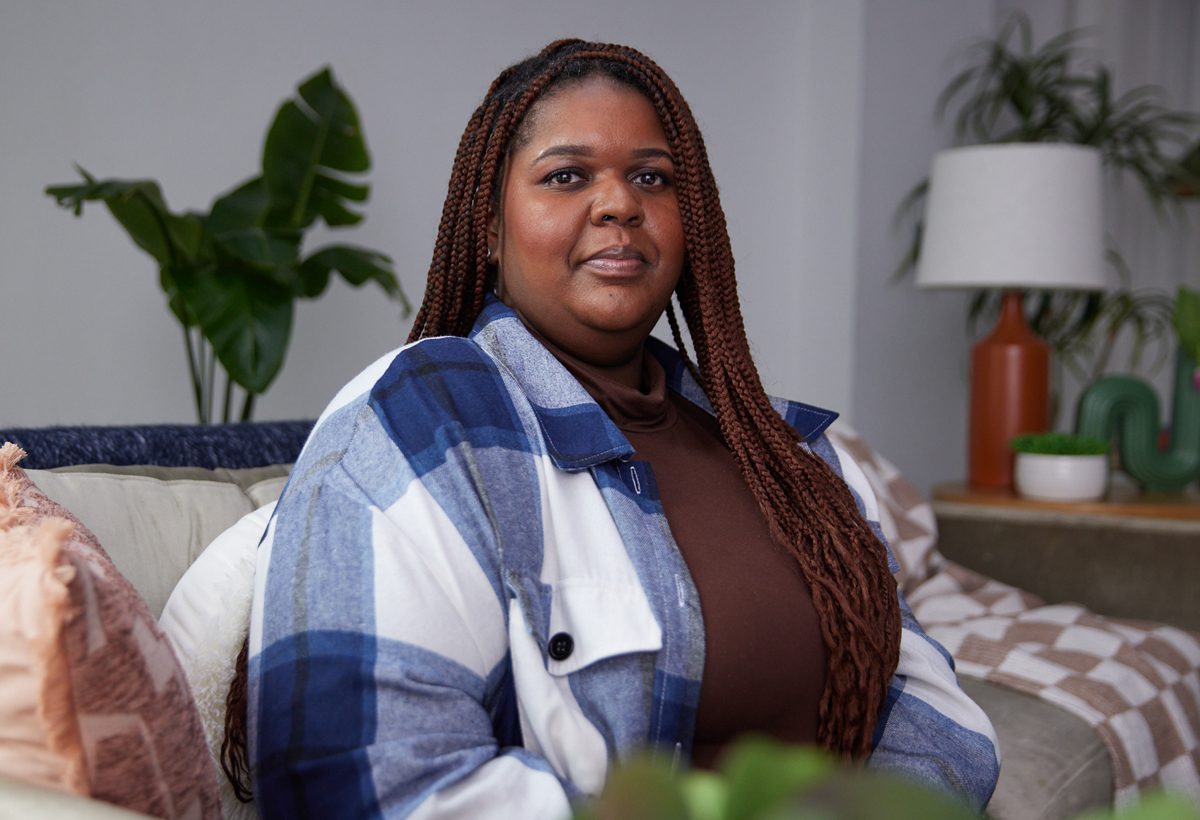
Porshea Gaddy
In her sixth month of pregnancy, with her blood pressure rising, her obstetrician at NewYork-Presbyterian/Columbia University Irving Medical Center referred Porshea to its Mothers Center. The team at the center cares for the most complex pregnancies, providing high-risk obstetric and specialist care all in the same location.
Porshea recalls her first meeting with her new obstetrician, Dr. Whitney Booker. “She instantly reassured me and told me, ‘You’re going to be fine,’” Porshea says.
Dr. Booker, who also happened to be pregnant at the same time, told Porshea that she had high blood pressure too, and was also a patient of the Mothers Center.
“Dr. Booker said, ‘Listen, I’m pregnant, and I have things going on with me, so you’re not alone. And I’m going to make sure you’re OK.’”
Porshea remembers, “She understood where I was coming from. She was like my big sister. And I said, ‘OK, Dr. Booker, we’re in this together now.’”
A Team of Specialists
Opened in 2018, the Mothers Center at NewYork-Presbyterian/Columbia University Irving Medical Center is a place where high-risk pregnant patients can access all the comprehensive care they need. This includes maternal-fetal medicine experts like Dr. Booker for high-risk obstetric care, as well as specialists like cardiologists, surgeons, endocrinologists, and neurologists. Patients are also offered on-site mental health services to manage the emotional stress of having a high-risk pregnancy.
To make the appointments more convenient for patients, specialists come to the center, allowing women to receive their tests and care in a single visit rather than traveling to separate doctors’ offices. Working together as a team, the specialists meet regularly to discuss and collaborate on each patient’s unique case.
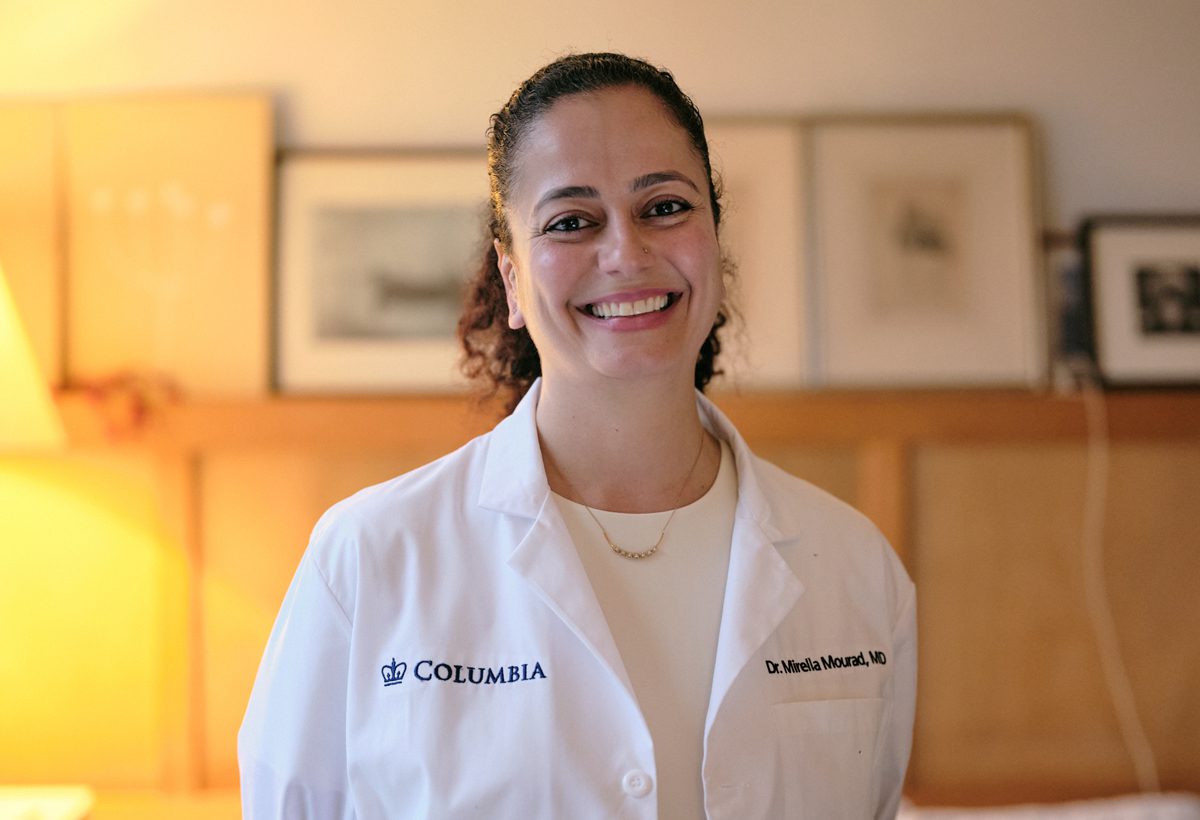
Dr. Mirella Mourad
“We are a one-stop shop for everything,” says Dr. Mirella Mourad, director of the Mothers Center and an assistant professor of Obstetrics & Gynecology at Columbia University Vagelos College of Physicians and Surgeons. “You come in, meet with your doctor, get your ultrasound, and meet with the different consultants that are necessary for your care. We make sure the baby’s doing well and that we have a good plan for the pregnancy, for labor and delivery, and postpartum.”
The Mothers Center is equipped to care for patients with challenging conditions, such as placenta accreta — a complication that increases the risk for premature birth and hemorrhage at the time of delivery — diabetes, heart issues, liver, kidney and heart transplants, and recurrent pregnancy losses and preterm births.
“We have everything to help support you during your pregnancy, no matter what it looks like,” says Dr. Mourad.
Adds Dr. Booker, “Women come to us knowing they’re at high risk. They’re willing to do whatever it takes to grow their family. We support and guide them through their journey.”
A Spike in Blood Pressure
Porshea took her blood pressure at home every day, and at her check-ups every two weeks, she received tests including ultrasounds to check the growth and health of the fetus. Dr. Booker kept a close watch for signs of preeclampsia and adjusted Porshea’s blood pressure medication several times. Soon, Porshea’s visits with Dr. Booker increased to every Friday. “I always found Dr. Booker to be so soothing,” she says.
At Porshea’s routine check-up in her 37th week, however, her blood pressure reading hit a new peak: she had developed preeclampsia.
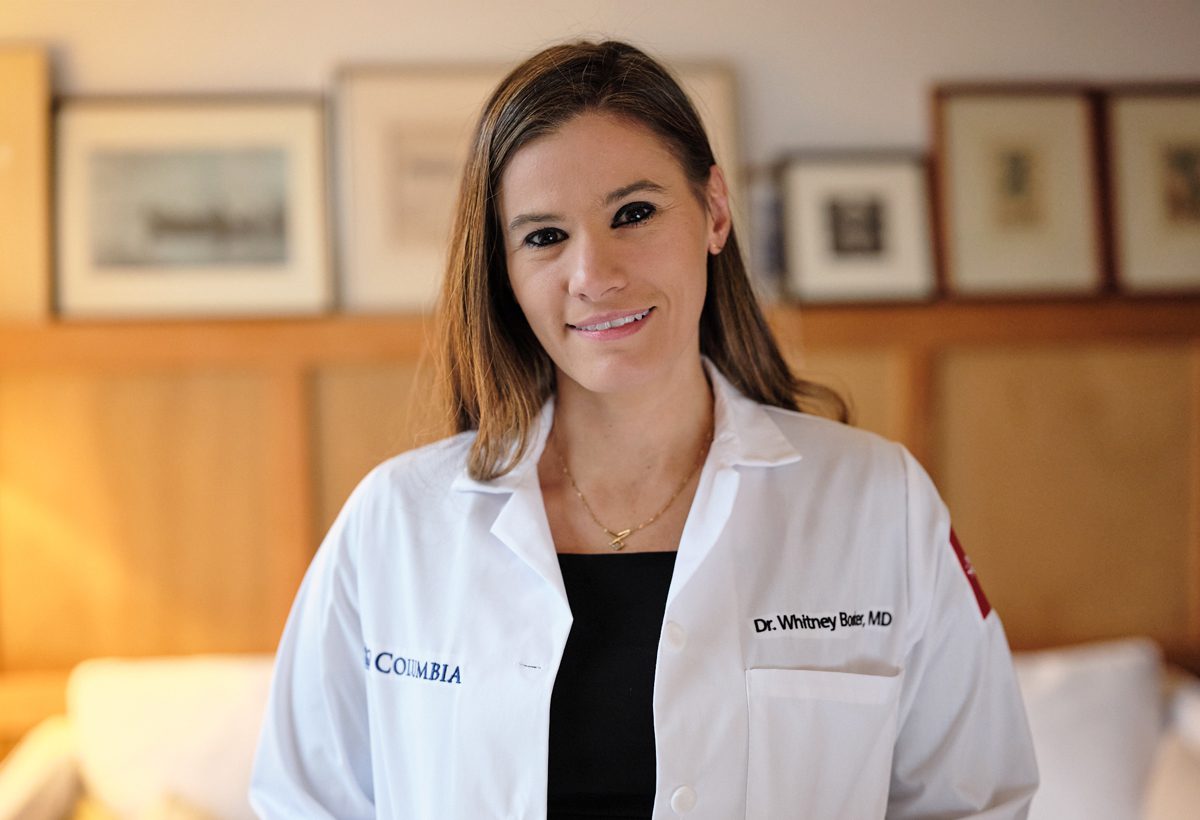
Dr. Whitney Booker
“With preeclampsia, women have high blood pressure that can damage the kidneys and liver,” says Dr. Booker, an assistant professor of Obstetrics and Gynecology at Columbia University Vagelos College of Physicians and Surgeons. “Sometimes they can have neurological complications like seizures and strokes. Porshea’s blood pressure was at that level.”
Dr. Booker asked Porshea to sit down in her office and explained the need to deliver the baby immediately.
Porshea was not ready. Her mind ran through the things she needed to accomplish and the baby shower planned for the next day. But most of all, she felt afraid.
Dr. Booker knew that she needed to appeal to Porshea, not with test results but by showing she cared. “I sat not across from her but next to her with a belly just as pregnant as hers and told her I was concerned,” Dr. Booker says.
“She had a tear in her eye,” Porshea recalls, “And she said, ‘Please, please, I’m begging you. If you don’t [deliver the baby soon], there’s a possibility that things will go wrong. Please, let me deliver the baby today.’”
Porshea recognized the seriousness of her condition and agreed to have labor induced. As her labor progressed over the hours, with husband John holding her hand, the baby’s heart rate became concerning, and the team performed a cesarean section to deliver the baby quickly. Venus Harmony, now 19 months, was born a healthy 7 pounds, 11 ounces with a full head of hair.
When she held her baby in her arms, Porshea remembers thinking, “You’re here!” she says. “I couldn’t stop staring at her. She was so beautiful.”
Feels Like Family
Today, Porshea is juggling life with her toddler, graduate school, and her job driving the M5 bus, which has a bus stop right in front of the Mothers Center. Whenever she stops there, “It always reminds me of my pregnancy journey, Venus’ birth, and of Dr. Booker. I feel like I’m her family.”
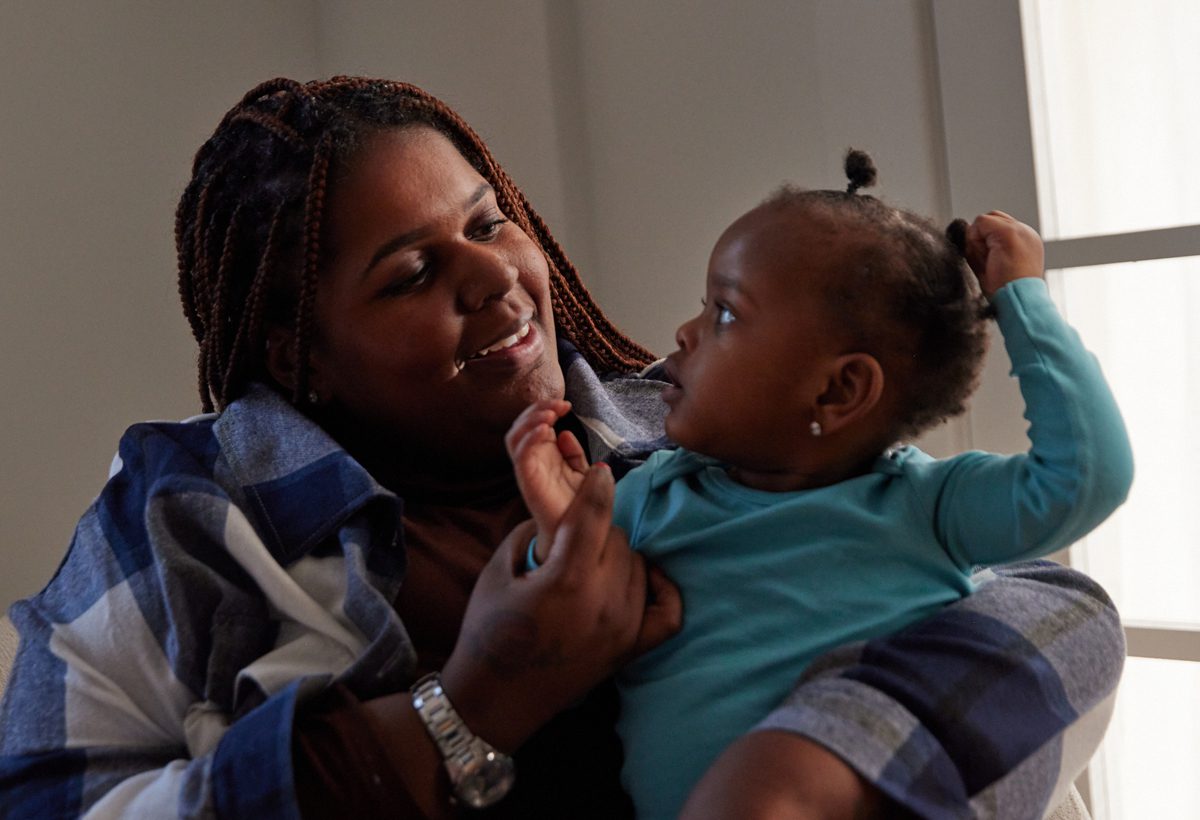
Porshea and her daughter Venus Harmony, 18 months old.
It’s patients like Porshea who inspire Dr. Booker’s work. “Seeing good outcomes and healthy babies is what drives me to come back and do this every day,” Dr. Booker says.
The Mothers Center also connected Porshea, who had weighed more than 300 pounds, to a nutritionist. She decided to undergo gastric bypass surgery and has been delighted to see the number on the scale steadily dropping.
“Now I have a baby to live for,” she says, “so I definitely want to be my best.”
Journeys to Motherhood
Two women, both with complex medical histories, share how the expert care teams at the Mothers Center helped them realize their dreams of starting families.
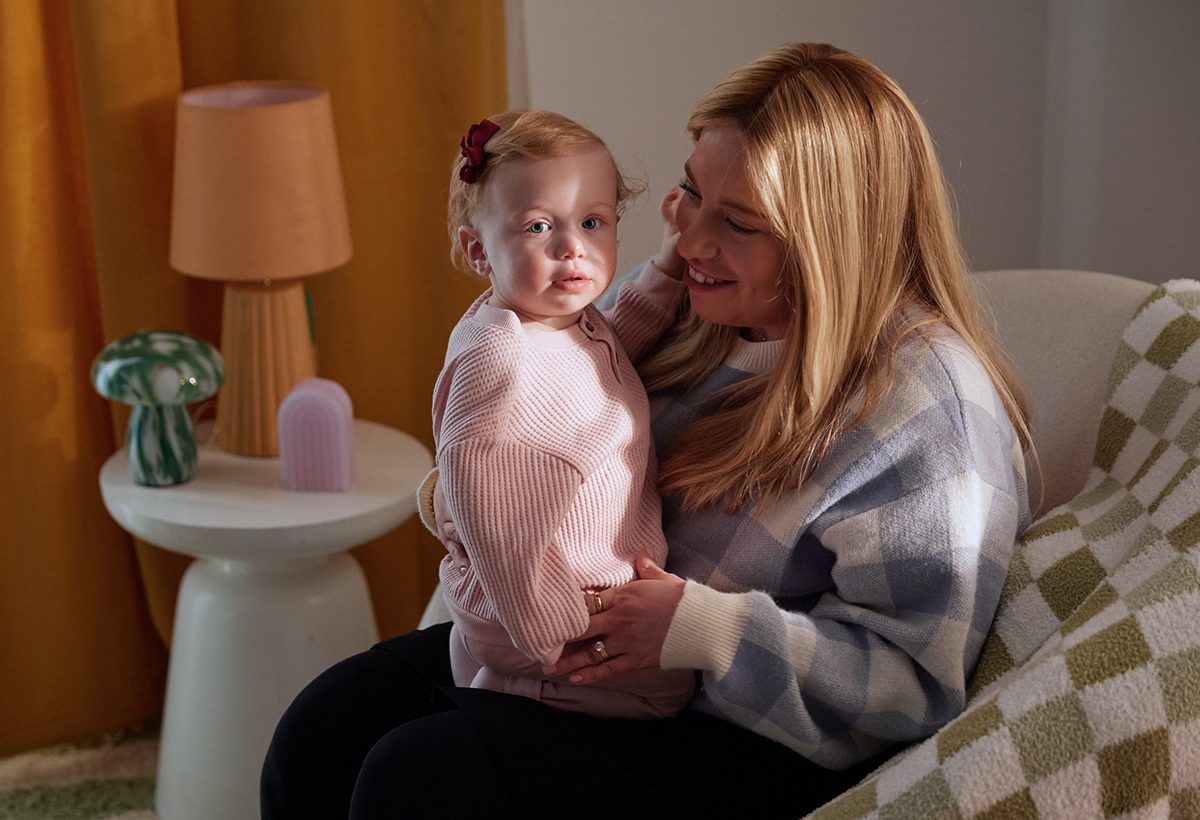
Estee Goldschmiedt
I was born with a rare congenital heart defect that required me to have multiple reconstructive surgeries. Over the years I had heard from many doctors, “You will not be able to sustain a pregnancy. Your heart can’t handle it.” But Dr. Robert Sommer at NewYork-Presbyterian/Columbia, my cardiologist since birth, said I was strong enough and assured me, “If you decide to get pregnant, we will support you.”
Dr. Sommer sent me to Dr. Stephanie Purisch at the Mothers Center, who specializes in taking care of women with cardiac disease in pregnancy. The Mothers Center created a team of doctors that I would need throughout my pregnancy, from a therapist to help me through my pregnancy-related anxiety, to a liver specialist, and a hematologist for my blood. Everyone worked together and was in constant communication with each other.
I visited the Mothers Center twice a week during the second half of my pregnancy, and I was so closely monitored that I thrived. I followed every instruction they gave, doing at-home blood pressure readings and checking my oxygen levels. I felt super safe throughout my pregnancy.
I was induced at 36 weeks. Even though there were complications during the delivery, my doctors were prepared for everything. When my daughter Aria was born, it was so miraculous and empowering.
When I first held her, I was in disbelief. It was surreal. I cried. I laughed. And I still don’t truly feel that it’s real at times.
Walking down the street with my husband Kevin and Aria, I look back and think, I’m so grateful that this is my life. As hopeful as I was, I never thought it was going to be like this. I couldn’t have done it without the Mothers Center.
“Only a few years ago, attempting a pregnancy would have been unthinkable for a mother with such severe heart issues. But thanks to Estee’s multi-specialty team at the Mother’s Center, she was able to have beautiful little Aria.”
– Dr. Robert Sommer
“Delivering baby Aria and helping Estee safely start her family was one of the most memorable moments in my career as a high-risk obstetrician. It is such a privilege to be able to take care of patients like Estee. It’s why I go to work each day!”
– Dr. Stephanie Purisch

Janeica Davis
I always wanted a family, but after two painful pregnancy losses — at 19 weeks and 21 weeks —I didn’t know if I wanted to keep trying. The doctors said I had a condition called cervical insufficiency, in which the cervix opens too early. Through the Mothers Center, I met Dr. Arnold Advincula, a specialist in a unique procedure called transabdominal cerclage for the most challenging cervix insufficiency cases. The procedure involved stitching the top of the cervix to prevent it from opening.
Dr. Advincula made me feel extremely comfortable and safe. The procedure went well, and I got pregnant a few months after the surgery. I hoped and prayed that I could carry to full term this time. My OB at the Mothers Center, Dr. Whitney Booker, was there to guide me. I took weekly progesterone shots to prevent premature labor. Dr. Booker watched me closely, gave me advice on how to manage my anxiety, and shared relaxation apps with me. She helped me believe that we could make it. She was my partner in this turbulent journey.
After we passed the 21st week, every week was a celebration. When we reached the 37-week mark, my husband George and I said, “We did it!”
I had a cesarean section and when they brought my daughter Isabella to me, I looked at her and she looked at me, and she was the cutest thing ever. Holding her in my arms was the best feeling in the world.
Ten months later, I said let’s try one more time, maybe we can have two kids. This time, I felt more confident. In 2023, my son George, who we call Gio, was born.
I’m so grateful for my team. I have my daughter and son, and I couldn’t have done it without the Mothers Center and NewYork-Presbyterian. I gave Dr. Advincula a pen that said, “Dr. Advincula creates miracles.” At Christmas, I sent Dr. Booker our family picture. It said, “This is us. You helped us get here.”
“It’s incredibly emotional because she’s a patient who I wasn’t sure could ever carry a pregnancy to term. And seeing her today with two children of her own, it’s amazing.”
– Dr. Whitney Booker
“It’s a huge privilege to be able to take care of patients like Janeica. The fact that she was able to achieve her dream of starting a family makes me super happy. It’s all the thanks I need.”
– Dr. Arnold Advincula
Additional Resources
Learn about NewYork-Presbyterian’s high-risk pregnancy care.




